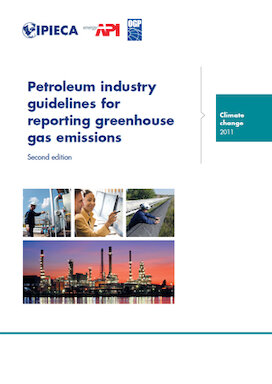Recognizing the need to update the original version of the Guidelines to reflect changing practices, Ipieca and API jointly initiated the development of this second edition of the Guidelines to continue to promote credible, consistent and reliable greenhouse gas (GHG) accounting and reporting practices from oil and gas operations. As with the original, these guidelines are based on the WRI/WBCSD GHG Protocol, but add (and occasionally differ) by providing industry-specific guidance. The new edition holds significantly revised chapters on setting boundaries (including discussion of financial control and clearer reference to Scope 1, 2, and 3 emissions) and the evaluation of industry GHG emissions, including uncertainty. There are also revisions to discussions around reporting emissions over time, de minimis emissions, and normalization. The revised Guidelines have aimed to achieve consistency with the approaches described in the revised Ipieca/API/OGP publication Oil and gas industry guidance on voluntary sustainability reporting.
Petroleum industry guidelines for reporting greenhouse gas emissions - 2nd edition

Related resources
- 2 September 2021
This document offers guidance for oil and gas industry JVs on the governance, policy development, implementation and management of HSSE&SR.
- 27 January 2013
Energy management through a well-structured 'energy management system' (EnMS) ensures that energy issues are properly taken into consideration in all aspects of the industry's activities.01.
- 14 April 2014
The Oil Spill Industry Project (JIP) technical report (Revision 2016)
- 28 June 2007
This document is the second of five greenhouse gas reduction 'project families' in an ongoing process of developing guidelines for project activities of interest to the oil and gas industry. Guidelines are provided for carbon dioxide capture and geological storage as an emission reduction option. The focus is on specific technical considerations and aspects rather than policy considerations.



